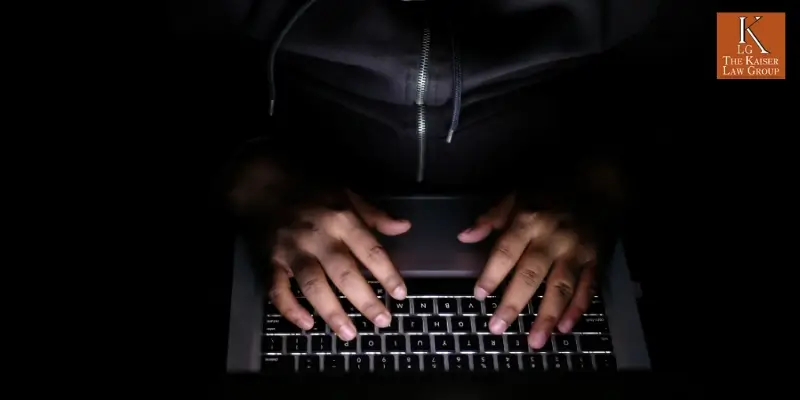Coconino County White Collar Crime Lawyer
Coconino County White Collar Crime Attorney
Not all crimes involve violence, but many still result in significant harm. White-collar crimes are examples of such crimes. Penalties may range from misdemeanors to felonies, but they all can have a grave impact on victims. If you are accused of a white-collar crime in Arizona, you may want to consider consulting with a Coconino County white-collar crime lawyer.
At The Kaiser Law Group, we have a solid history of representing a broad range of clients, including those accused of white-collar crimes. Because of our lead attorney’s experience as an investigator, we deeply understand all sides of the legal process. This makes us more equipped to handle your case with meticulous care and aggressive litigation.

What Is a White-Collar Crime?
A white-collar crime is a nonviolent offense typically committed for financial gain. These crimes often occur in business or professional settings, though they can arise in other industries, such as government and healthcare. White-collar offenses usually involve deceit, fraud, or manipulation targeting unsuspecting victims. They can result in significant financial losses or damage to public trust.
In some cases, these offenses span multiple jurisdictions and involve complex financial matters.
Common White-Collar Crimes
White-collar crimes mainly occur in a business setting but may also occur in healthcare or other industries. Sometimes, victims are individual people, and other types are entire organizations. The most common white-collar crimes, according to the Federal Bureau of Investigation (FBI), are listed below:
- Healthcare fraud. Involves defrauding healthcare companies to obtain unearned benefits.
- Corporate fraud. Corporate fraud can range from falsifying financial documents to insider trading. Any fraudulent or deceitful behavior within corporations may fall under this umbrella.
- Money laundering. Money laundering is a way to clean money that is unearned in unethical or illegal ways. Examples may include creating a fake business to hide money earned through drug deals.
- Securities and commodities fraud. This form of fraud is specific to complex investment schemes.
- Mortgage fraud. Mortgage fraud may include a prospective homebuyer lying on an application to secure a loan or a real estate professional stealing money from homeowners or lenders.
- Financial fraud. Financial fraud may include embezzlement or stealing money from banks or other financial institutions using elaborate schemes.
- Identity theft. As the world becomes more technologically advanced, so do the opportunities for criminals to commit identity or intellectual property theft.
In 2023, there were 1,081 criminal cases filed in Coconino County, which included white-collar crimes. Although there is no specific data for the number of white-collar crimes committed in Coconino County, crimes that are specific to the area, according to the county’s website, include:
- Lottery schemes
- False sales
- Fake advertisement
- Fake businesses or charities
- Impersonation
- False requests for personal hardship
- Door-to-door scams
Another common scam is fraudulent phone calls with the purpose of enticing victims to provide payment information. Specifically, perpetrators have been accused of posing as members of the Coconino County Sheriff’s Office, accusing unsuspecting victims of owing warrants. These offenses contribute to trends seen in crime statistics across cities in Arizona.
Penalties for White Collar Crimes
White-collar crimes may be penalized in both state and federal courts. If you commit a felony white-collar crime in Coconino County, Arizona, your case will likely be handled in the Coconino County Superior Court in Flagstaff. Misdemeanor cases are also typically handled at the same location: 200 N. San Francisco St., Flagstaff, AZ 86001.
The penalties for white-collar crimes depend on the severity of the crime as well as the amount of money stolen or losses incurred. Your penalty may involve paying fines, restitution, probation, or even serving time.
For example, fraud, which involves obtaining benefits under false pretenses, is a class 2 felony in Arizona pursuant to Arizona Revised Statute 13-2310, punishable by 3-10 years in prison and up to $150,000 in fines. Other white-collar felonies may be class 3-6.
On the other hand, credit card fraud is a class 1 misdemeanor, punishable by up to six months in prison and up to $2,500 in fines for individuals and up to $20,000 for businesses. Other penalties include paying restitution, serving probation, and a criminal record that may impede a person’s opportunity to obtain employment, housing, or educational opportunities.

FAQs About White Collar Crime Law in CoconinoCounty,AZ
What Is a White-Collar Crime in Arizona?
There are many white-collar crimes in Arizona, which all involve some form of deceit, manipulation, or theft. White-collar crimes may be nonviolent, but victims are usually defrauded out of money or other opportunities. Common examples include all forms of fraud, identity theft, lottery schemes, false advertisements, and fraudulent sales of goods and services.
How Do You Prove White Collar Crime?
White-collar crimes are typically hard to prove because they tend to be complex and without clear evidence that can tie a perpetrator to the crime. Therefore, proving a white-collar crime requires several professionals, from FBI agents to the Securities and Exchange Commission, to the Treasury Department, and state investigators.
What Are the Consequences of White-Collar Crimes?
Many white-collar crimes have felony consequences. In Arizona, felonies are classified as class 2-6, with class 1 felonies having the harshest penalties, typically reserved for murder charges. Class 2 felony charges are the most severe for white-collar crimes and could mean serving 3-10 years in prison, up to $150,000 in fines, and restitution.
Why Are White-Collar Crimes Hard to Prosecute?
White-collar crimes are hard to prosecute because they may be hard to trace. Those who commit or are accused of white-collar crimes tend to go through a painstaking process to absolve themselves of guilt. Most white-collar crimes involve elaborate schemes that may be hard to uncover. This is why high-level professionals, like the FBI, may be required to help prosecute white-collar crimes. Investigators must also operate within constitutional limits, especially during searches and seizures, which can impact what evidence is admissible.
Offering Aggressive Litigation to Protect Your Rights
At The Kaiser Law Group, we are former investigators, so we understand how the prosecution may derive their arguments and evidence. With our legal knowledge and aggressive litigation tactics, we can help you fight your white-collar crime case. Contact us today if you need litigation.

